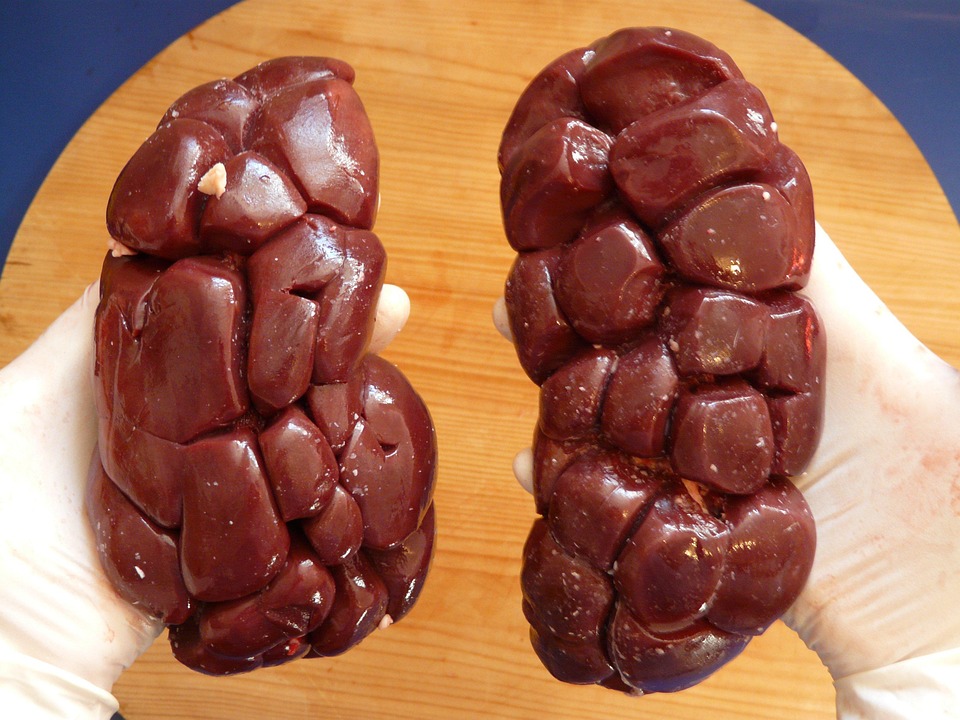Unlocking the Secrets of the Kidneys: The Body’s Essential Filters
Introduction
The kidneys are one of the most vital organs in the human body. Despite their small size—each kidney averages about the size of a fist—they perform numerous critical functions that ensure our bodies maintain homeostasis. These paired organs filter blood, remove waste, balance bodily fluids, and produce hormones that are vital for blood pressure regulation and red blood cell production. This article explores the anatomy, functions, significance, potential diseases, and the advances in kidney research.
Anatomy of the Kidneys
1. Structure
The kidneys are located at the back of the abdominal cavity, just below the rib cage, and are protected by surrounding fat and connective tissue. Each kidney features several key structures:
- Cortex: The outer layer, responsible for filtering blood.
- Medulla: The inner region, containing renal pyramids that help with urine concentration.
- Pelvis: The funnel-shaped cavity where urine collects before moving to the bladder.
2. Nephrons: The Functional Units
At the heart of kidney function lies the nephron, the smallest functional unit of the kidney, approximately 1 million in each kidney. Each nephron consists of:
- Glomerulus: A cluster of capillaries where blood filtration begins.
- Bowman’s capsule: Encases the glomerulus and collects the filtrate.
- Renal tubules: Includes the proximal convoluted tubule, loop of Henle, and distal convoluted tubule, which further process the filtrate into urine.
Functions of the Kidneys
The kidneys play several crucial roles in maintaining bodily health.
1. Filtration and Excretion
The primary function of the kidneys is to filter waste products and excess substances from the blood:
- Removal of toxins: Urea and creatinine are byproducts of protein metabolism and muscle activity that need to be excreted.
- Electrolyte balance: The kidneys regulate sodium, potassium, calcium, and phosphate levels, crucial for nerve function and muscle contraction.
- Fluid balance: Through the concentration and dilution of urine, the kidneys maintain overall fluid balance in the body.
2. Regulation of Blood Pressure
The kidneys help regulate blood pressure through a system known as the renin-angiotensin-aldosterone system (RAAS):
- Renin production: In response to low blood pressure or low sodium levels, the kidneys release renin.
- Angiotensin formation: Renin converts angiotensinogen (produced by the liver) into angiotensin I, which is then converted into angiotensin II by the lungs.
- Aldosterone secretion: Angiotensin II stimulates the adrenal glands to release aldosterone, promoting sodium and water reabsorption, thereby raising blood pressure.
3. Hormone Production
The kidneys produce and secrete hormones that play vital roles in bodily functions:
- Erythropoietin (EPO): Stimulates red blood cell production in the bone marrow in response to low oxygen levels.
- Calcitriol: The active form of vitamin D, which helps regulate calcium absorption in the intestines and maintains bone health.
4. Acid-Base Balance
The kidneys play a vital role in maintaining the body’s acid-base balance by:
- Regulating bicarbonate (HCO3) reabsorption and hydrogen ion (H+) secretion, thus ensuring proper pH levels in the blood.
Importance of Kidney Health
1. Chronic Kidney Disease (CKD)
Chronic Kidney Disease is a significant public health concern, affecting millions globally. It is defined by a gradual decline in kidney function, typically due to:
- Diabetes mellitus: High blood sugar damages blood vessels in the kidneys.
- Hypertension: High blood pressure can cause damage to the kidney’s filtering units.
- Glomerulonephritis: Inflammation of the kidney’s filtering units can lead to CKD.
2. Early Detection and Management
Early detection is crucial for managing CKD. Health professionals often rely on:
- Blood tests: Measuring serum creatinine levels to estimate glomerular filtration rate (GFR).
- Urine tests: Checking for proteinuria (protein in urine) as an early sign of kidney damage.
Advances in Kidney Research
Recent advancements in kidney research have opened new avenues for treating and understanding kidney diseases:
1. Gene Therapy
Emerging studies have pursued gene therapy as a potential treatment for specific kidney diseases, particularly genetic disorders like polycystic kidney disease (PKD) and congenital anomalies of the kidney and urinary tract (CAKUT).
2. Regenerative Medicine
Stem cell research holds promise for regenerating damaged kidney tissue or even creating bioengineered kidneys, potentially alleviating the need for dialysis and transplants.
3. Artificial Intelligence in Diagnostics
AI and machine learning are being leveraged to improve early diagnosis and personalized treatment approaches for kidney diseases by analyzing vast datasets and identifying patterns in disease progression.
Conclusion
The kidneys are indispensable organs with diverse functions that are fundamental to the body’s overall health. Understanding and preserving kidney health through preventive care, early detection, and research advancements can significantly impact an individual’s quality of life. As science progresses, the secrets of these essential filters will continue to be unveiled, ensuring better health outcomes for individuals affected by kidney diseases.
References
- National Kidney Foundation. (2022). "Kidney Disease Statistics." Available at nkf.org.
- KDOQI Clinical Practice Guidelines. (2020). "Clinical Practice Guidelines for Nutrition in Chronic Kidney Disease." Available at kidney.org.
- Levey, A. S., et al. (2019). "Kidney function and health status." The New England Journal of Medicine.
- Chen, Y., et al. (2021). "Artificial Intelligence in Nephrology: Current Applications and Future Directions." Nature Reviews Nephrology.
- Ma, T., et al. (2020). "Advancements in Kidney Regeneration and Therapy." Nature Biotechnology.
This article represents an overview of kidney function and health, emphasizing the importance of understanding these organs to improve public health outcomes. For deeper insights, consult specialized nephrology journals and resources from health organizations.
























Add Comment